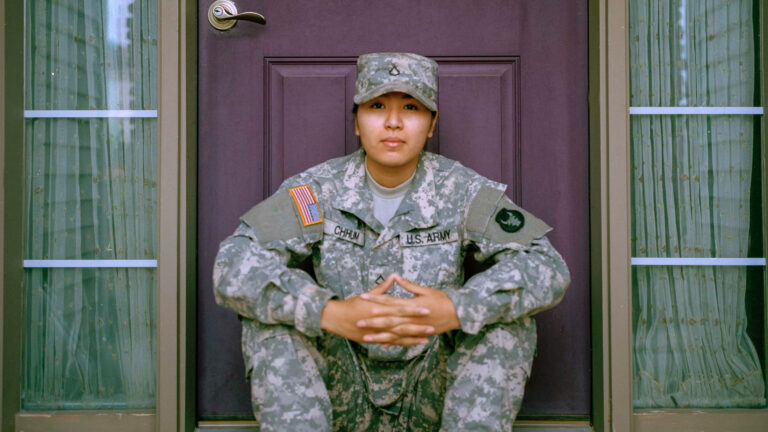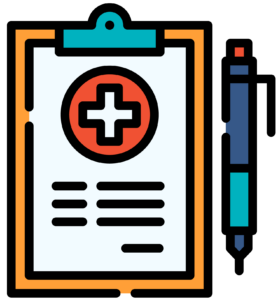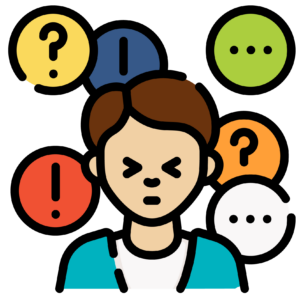What is a caregiver?
When many people hear the word caregiver, they tend to think of someone who takes care of a disabled relative and acts almost like a home nurse while also taking care of finances, cooking, and cleaning. That’s not wrong, but not all caregivers play such an involved role. Being a caregiver can mean a lot of things. A caregiver can do one or all of the following (or many other things not in the list below):
- Provide support and encouragement.
- Drive someone to appointments.
- Attend appointments and help someone make treatment decisions.
- Help someone to understand their rights.
- Listen when someone is struggling with symptoms or the recovery process.
- Make legal or financial decisions on someone’s behalf.
- Help someone get accommodations at work or school.
- Run errands or help with household chores.
- Be there to manage crisis situations.
Caregivers can be parents, relatives, friends, partners, adult children, neighbors, or have some other kind of relationship to the person living with a health condition.
In this guide, we’ll talk specifically about people who care for someone who has been recently diagnosed with a mental health condition.
Getting started
 After finding out that someone you care about has been diagnosed with a mental health condition, your mind probably goes straight to the question, “what can I do to help?” Before jumping into helper mode, the best thing you can do is educate yourself about your loved one’s mental health condition.
After finding out that someone you care about has been diagnosed with a mental health condition, your mind probably goes straight to the question, “what can I do to help?” Before jumping into helper mode, the best thing you can do is educate yourself about your loved one’s mental health condition.
View Mental Health America’s information about many mental health conditions.
Learn more









Challenging stigma
 It’s time to take a look at yourself. There are negative attitudes (stigma) around mental health conditions that don’t seem to exist around other health conditions, and many people don’t even realize they have them. Before you can be a good caregiver, you need to assess your thoughts around the nature of mental health conditions and challenge any negative perceptions you might have. For instance, you may have grown up in a household where depression was seen as a weakness that could be cured by prayer.
It’s time to take a look at yourself. There are negative attitudes (stigma) around mental health conditions that don’t seem to exist around other health conditions, and many people don’t even realize they have them. Before you can be a good caregiver, you need to assess your thoughts around the nature of mental health conditions and challenge any negative perceptions you might have. For instance, you may have grown up in a household where depression was seen as a weakness that could be cured by prayer.
Empathy is one of the best ways to help combat stigma. To have empathy is to put yourself in someone else’s shoes and allow yourself to feel and understand things the way that they are experiencing them (which is different from sympathy or feeling sorry for someone). Social media, online forums, and blogs are great places to learn more about what it’s actually like to live with mental illness.
Learn more
Starting a conversation
 If you’re newly diagnosed with or experiencing symptoms of a mental health condition for the first time, you may feel like your whole world has changed. It takes time to learn how to live with a mental health condition – for you and the people close to you. Depending on your family structure, dynamics, and circumstances, living with a mental health condition can strain those relationships.
If you’re newly diagnosed with or experiencing symptoms of a mental health condition for the first time, you may feel like your whole world has changed. It takes time to learn how to live with a mental health condition – for you and the people close to you. Depending on your family structure, dynamics, and circumstances, living with a mental health condition can strain those relationships.
Each person experiences mental health conditions differently. The only way to really understand what your loved one is going through is to talk to them about it. Some people will jump at the opportunity to express themselves, but others may still be trying to process internally what it means to have a mental health condition. If they don’t feel like talking, be patient and let them know that you’re there when they’re ready.
Tips for talking
- Be careful about giving advice—wait until they ask for it, or at least check to make sure they’re open to it. You can make suggestions for treatments they could try, and you can do supportive things like taking them to their first therapy appointment or reminding them to take their meds. But don’t demand that they follow a specific treatment plan. Even if you think you know what they need, mental health treatment works best when the person who’s receiving it is on board.
- If you’re a parent, giving advice and making sure that your child is taking their medication is a big part of your job. Make sure that you explain to your child why you are doing what you’re doing and be sure to listen to their concerns about their own treatment.
- If you’ve experienced mental illness yourself, you can share your experiences to help them open up and feel supported. But don’t assume that their experiences will be the same as yours.
- Ask them what you can do to help. Sometimes that means just being there with them or listening while they vent. Or maybe the daily demands of life feel overwhelming when symptoms aren’t under control and helping with small tasks like doing the dishes, going to the grocery store, or picking up children can make a big difference. Some people may want more help and others may just want some space.
Learn more
Legal caregivers
 Providing care for a minor or adult that you’re legally responsible for is very different than caring for an independent adult. In these cases, you may be handling their personal matters or making decisions about their care when they’re unable to do so. The goal is to interfere as little as possible with their independence and only intervene when there are serious issues related to health, safety, or exploitation.
Providing care for a minor or adult that you’re legally responsible for is very different than caring for an independent adult. In these cases, you may be handling their personal matters or making decisions about their care when they’re unable to do so. The goal is to interfere as little as possible with their independence and only intervene when there are serious issues related to health, safety, or exploitation.
The specifics of legal caregiving and guardianship will vary based on the state you’re in. Minors are typically under the guardianship of their parents until age 18 by default. For adults who aren’t able to care for themselves, there are a few ways in which you may become their temporary or long-term agent/guardian:
Power of attorney
A power of attorney is a legal document that grants a selected person (the agent) rights as someone’s personal representative. Some health care power of attorney documents are effective immediately, while others only go into effect when and if the individual is deemed unable to make informed decisions on their own.
If the person you care for names you as their health care agent, you’ll have legal decision-making authority over their care and serve as their advocate when the power of attorney is in effect. You’ll also have access to the same health information as the person who is receiving care under HIPAA.
While the power of attorney form can be used as a standalone document, it is often incorporated into a psychiatric advance directive (PAD).
Psychiatric advance directives (PADs)
A PAD is a legal document that the individual you care for can create during a time of good mental health to guide their care in case of a mental health crisis, when they may be deemed unable to make informed decisions. There are generally two parts: an advance instruction, which clarifies their preferences regarding treatment and services, and a health care power of attorney. As long as the PAD meets applicable state requirements, it is legally enforceable – the individual’s providers must follow it.
Depending on state law, the individual may be able to choose more than one agent – they can designate primary and backup agents or give each different responsibilities (making care decisions versus handling household responsibilities). Your role should be clearly defined in the psychiatric advance directive.
Learn more about psychiatric advance directives
Adult guardianship and conservatorship
If the person you care for is already unable to make informed decisions about their health but did not appoint a power of attorney ahead of time – a common situation – then a court may appoint you as their conservator or guardian (title varies depending on the state). An adult’s guardian or conservator is someone who is mandated by the court to be in charge of an individual’s legal, financial, and health care decisions. Most often, a conservator is a spouse or adult child. If a family member is not considered able to take on the position of conservator, a professional may be hired.
Learn more about conservatorship.
Minor guardianship
As the legal guardian (typically the parent) of a minor, you are their personal representative and have the legal authority to make health care decisions for them. If they have a mental health condition, there are a few ways in which that legal designation can allow you to better care for them.
- Advocacy. Unfortunately, health care providers don’t always take young people seriously – especially those with a diagnosed mental health condition. But the minor you’re responsible for knows how they’re feeling better than anyone else and likely knows what care they want and need. You have the power to support their concerns and opinions and demand that they have a say in their treatment.
- School accommodations. Special education services are guaranteed to every child who needs them, but there’s a formal process you have to follow to get them. You (or the minor’s teacher) can initiate getting the minor evaluated in order to develop an Individualized Education Plan (IEP) that spells out the modifications to their program. If they don’t qualify for an IEP, a 504 plan is a good alternative.
Learn more
Caregiving in the treatment setting
 There are many ways to support someone who is receiving treatment for a mental health condition. One thing you can do is help them to communicate with their health care providers. In a way, you become a part of their treatment team. You can stay up to date on how their treatment is going, help them feel more comfortable opening up, help them process all the information they receive during visits, and assist with making follow-up appointments.
There are many ways to support someone who is receiving treatment for a mental health condition. One thing you can do is help them to communicate with their health care providers. In a way, you become a part of their treatment team. You can stay up to date on how their treatment is going, help them feel more comfortable opening up, help them process all the information they receive during visits, and assist with making follow-up appointments.
Treatment support tips
- Recognize that it may take time for your family member or friend to find the proper medications and dosages that work and encourage your family member or friend to speak immediately to their health care provider about any problems related to medications.
- Understand that recovery from mental illness isn’t simply a matter of “just staying on one’s medications.” Self-esteem, social support, and a feeling of contributing to society are also essential elements in the recovery process.
- If your loved one is experiencing weight complications as a side effect of recovery, be supportive in encouraging positive body image. If they are worried about or unhappy with their weight or body, encourage them to speak with their doctor. Providers can help figure out healthy next steps to gain/lose weight, stabilize weight, or cope with body image challenges.
Resources on MHA Screening
MHA resources





Navigating red tape, costs, and logistics
 Caregiving can be time-consuming, and its demands may pose challenges with your school or work schedules, finances, or other obligations you already have. On top of all of that, insurance can be confusing to navigate.
Caregiving can be time-consuming, and its demands may pose challenges with your school or work schedules, finances, or other obligations you already have. On top of all of that, insurance can be confusing to navigate.
Knowing options and courses of action can help red tape, costs, and logistics feel a little less overwhelming.
Learn more about paying for care
Learn more about taking time off of work or school
Learn more about insurance



Best practices in supporting your loved one
 Although new forms of therapy, medications, and community services have enabled many individuals to lead full, independent lives, support from family, friends, and peers remains an essential element in the recovery process. It is important to remember that someone who lives with a mental health condition isn’t a broken person that you need to fix. Some of the best practices in supporting your loved one include: fostering self-determination, helping them set goals, encouraging treatment, creating boundaries, and giving freedom.
Although new forms of therapy, medications, and community services have enabled many individuals to lead full, independent lives, support from family, friends, and peers remains an essential element in the recovery process. It is important to remember that someone who lives with a mental health condition isn’t a broken person that you need to fix. Some of the best practices in supporting your loved one include: fostering self-determination, helping them set goals, encouraging treatment, creating boundaries, and giving freedom.
Resources on MHA Screening
- How to help someone get motivated
- How can I help a loved one with mental illness?
- How can I help a loved one with anxiety?
- How can I help a loved one with bipolar?
- How can I help a loved one with PTSD?
- Friends and family information and support
- 7 tips for talking to a loved one about their mental health
MHA resources








Understanding challenges during the recovery process
 As a caregiver for someone with a mental health condition, it’s important to remember that recovery can be a long process, and challenges and setbacks are bound to come up. Both emotional and practical support is needed at this time.
As a caregiver for someone with a mental health condition, it’s important to remember that recovery can be a long process, and challenges and setbacks are bound to come up. Both emotional and practical support is needed at this time.
In addition to common challenges like finding the right treatment or medication, side effects of medications, paying for care, and navigating insurance, lifestyle changes may also be necessary and can be lonely at times. Your loved one may begin growing into a new version of themselves. Encouraging their new behaviors, communities, identities, or interests is important for them to feel supported throughout their recovery.
Learn more




Caregiver concerns
 Being a caregiver comes with a new set of challenges, responsibilities, and often worries. It’s important to acknowledge those feelings and know you are not alone. Caregiving is not easy, and there’s not one correct path with clear directions, but there are resources and support available.
Being a caregiver comes with a new set of challenges, responsibilities, and often worries. It’s important to acknowledge those feelings and know you are not alone. Caregiving is not easy, and there’s not one correct path with clear directions, but there are resources and support available.
Learn more
- My loved one’s behavior is scaring me
- Challenges and solutions for mental health caregivers (webinar)
- Will talking about someone’s delusions make them sicker?
- What to do when they don’t want help
- My loved one won’t talk to me about their mental health
- Caring for someone who is vocally ungrateful
- Someone I care about is harming themselves
- I think someone I care about has a mental illness
Taking care of yourself
 Taking care of another person – whether it’s a friend, family member, or significant other – is stressful. Those who give care to others are more likely to become physically and mentally unwell. Caregivers experience higher rates of depression and frequent mental distress than non-caregivers. The stress, worry, and emotional roller coaster felt while being a caregiver has consequences if you do not take care of yourself.
Taking care of another person – whether it’s a friend, family member, or significant other – is stressful. Those who give care to others are more likely to become physically and mentally unwell. Caregivers experience higher rates of depression and frequent mental distress than non-caregivers. The stress, worry, and emotional roller coaster felt while being a caregiver has consequences if you do not take care of yourself.
A few things you can do as a caregiver in order to support your mental health include: acknowledging your feelings about caregiving, taking time for yourself, getting enough sleep, exercising, setting healthy boundaries, asking family to help with caregiving roles, and seeking help for your own needs.
Learn more
- Being an effective caregiver
- When taking care of someone is too stressful
- How can I find support as a caregiver?
- I need a break from caregiving
- How can I take care of someone if I also have a mental illness?
- Who cares for the caregiver?
- Caregiver identity and mental health (video)
- Coping with caregiving stress
Additional resources
 This guide includes just some of the many resources MHA has created for caregivers. Find more information about caregiving.
This guide includes just some of the many resources MHA has created for caregivers. Find more information about caregiving.
If your loved one is in crisis, please seek help immediately.
- Call or text 988 or chat at 988lifeline.org.
- Text HOME to 741741 to connect with a trained Crisis Counselor from Crisis Text Line.
- Call 911 or go to the nearest emergency room.
Collaborating organizations
Mental Health America (MHA) recognizes and values collaboration as a fundamental cornerstone needed to effectively address the mental health needs of individuals and communities we are dedicated to serving. Our collaborators in the caregiving space include:
Caregiver Action Network – Be sure to check out their Staying strong while caregiving resources.
National Alliance on Caregiving – Read the report created in collaboration with Mental Health America and NAMI, On Pins & Needles: Caregivers of Adults with Mental Illness.
Survey
Find an MHA Affiliate near you
This campaign is supported by contributions from Janssen: Pharmaceutical Companies of Johnson & Johnson and Otsuka America Pharmaceutical, Inc.

